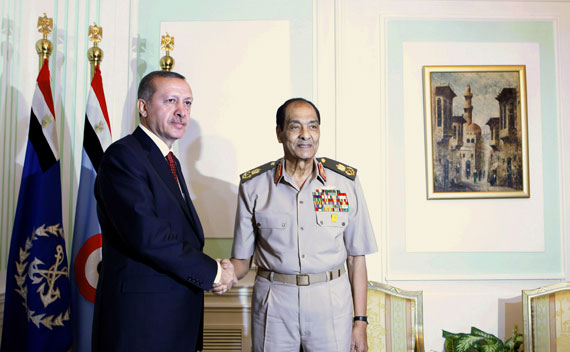Egypt: Supra-Constitutional Principles?
More on:

Sorry about the light blogging lately. I have been here, there, and everywhere with very little time.
So much has been happening in the Middle East, I am not really sure where to begin, but let me start with “going back to the well,” as they say. The Egyptian armed forces caused an uproar yesterday with the revelation that they intend to incorporate a series of supra-constitutional principles in Egypt’s new constitution, which will be drafted after the upcoming elections. As I wrote on FA.com over the summer, the SCAF’s effort to emulate the Turkish armed forces of the 1980s and 1990s is bound to fail. The Egyptian military is missing three basic interrelated elements that made it possible for the Turkish General Staff to play its self-endowed role of guardian:
1) A direct role in drafting the new constitution. Even if they have agents working on their behalf, the officers will not control the process.
2) The SCAF does not have the kind of elite support necessary to pull it off. They may have broader public support—indeed, they are counting on it—but they need the political class. In a revealing interview in the Turkish daily Today’s Zaman, one of Turkey’s leading journalists sheds light on how the journalists, academics, business, and other elements of the elite class supported the military’s intervention in politics. As Al Stepan of Columbia University taught me, a military can only meddle in politics if it has this kind of civilian support.
3) The Egyptian officers don’t seem to believe in anything other than the preservation of their own status and economic interests. This may well be the drivers in the SCAF’s efforts to recreate a version of the so-called “Turkish model,” but it is not going to be enough to garner the civilian support necessary for this role (see #2 above). The Turkish officers and their civilian collaborators were committed to the principles of Kemalism. For better or (mostly) worse, this provided an appealing vision of society for a lot of Turks who mattered. It does not seem that the military and Egypt’s civilian elite agree on much, and “stability for the sake of development” is not going to fly. It was tried once before and it failed miserably.
I have some downtime on Friday. I plan to post again. I will look at the current state of politics and what we can expect from Egypt’s election season.
More on:
 Online Store
Online Store